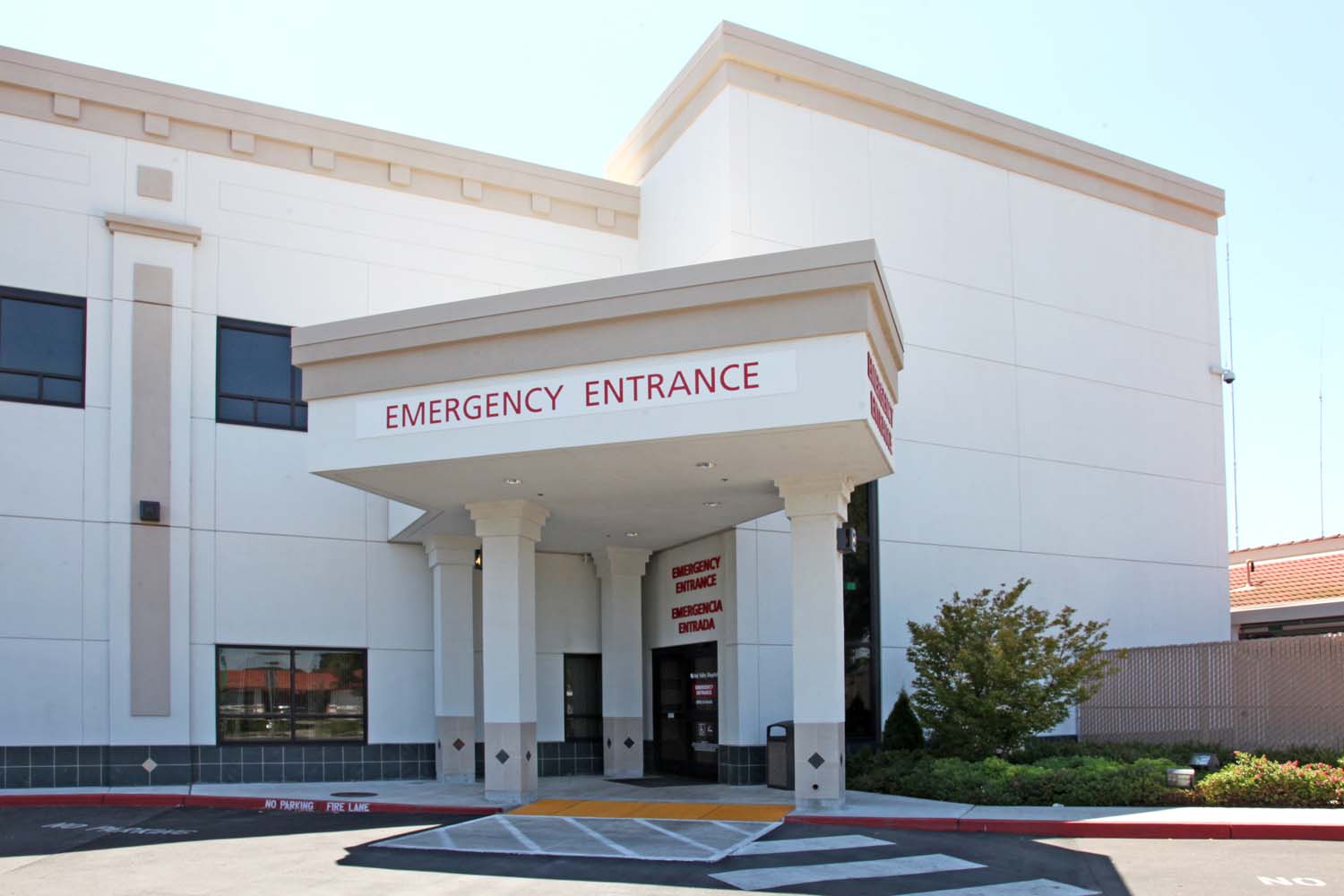Coming to the emergency room
your guide to emergency room care
Sometimes it’s hard to tell if you should go to the ER when you aren’t feeling well. For instance, what if you hurt your ankle, and your doctor’s office is closed? Or you wake up in the middle of the night with severe stomach pain?
Do you know when to go to the ER?
While it isn’t always easy to know where to go for care, having the answer could save your life when it’s a medical emergency. When you need treatment right away, Oak Valley Hospital offers a 24-hour emergency facility that offers the highest-quality care.

ER symptom checker - When should you go?
Back pain is a very common complaint, but it can be a sign of something serious that needs medical care right away. If your back pain is unbearable or if the pain also comes with any of the following symptoms, you should seek emergency care right away:
- Fever
- Sudden numbness or weakness
- Confusion, slurred speech or inability to speak, vision loss
- Loss of control over bladder or bowels
Without an x-ray, it can be hard to tell if a bone is broken, dislocated, or if you just have a bad sprain. Along with pain, the following symptoms may mean your bone is broken and you need medical care:
- Bruising around the area
- Swelling
- Deformity or a bone bulging through the skin
- A grating sound or a feeling caused by friction between bone and cartilage or the fractured parts of a bone (crepitus)
Call 911 right away if you have chest pain that is crushing or squeezing and comes with any of these symptoms:
- Sweating
- Shortness of breath
- Nausea or vomiting
- Pain that spreads from the chest to the neck, jaw or arms
- Lightheadedness
- Fast or irregular pulse
- Signs of shock
Signs of a heart attack may show up in other ways in women, and may include:
- Unusual fatigue
- Shortness of breath
- Nausea or vomiting
- Dizziness or lightheadedness
- Discomfort in your gut
- Discomfort in the neck, shoulder, or upper back
A concussion or any injury to the head can be very serious. If you have hit your head and have any of these symptoms, you should go to the ER:
- Loss of consciousness, even briefly
- Any period of amnesia, or loss of memory of the event
- Slurred speech
- Feeling dazed or confused
- Worsening or severe headache
- Vomiting
- Seizure
The flu virus is very common and does not normally require a visit to the ER. But, for the high-risk populations listed below, it can be very serious:
- Infants
- People over the age of 65
- Pregnant women
- People with certain diseases, such as asthma or chronic obstructive pulmonary disease (COPD)
- People with weakened or compromised immune systems
Signs that you should go to the ER with the flu include:
- Trouble breathing
- Vomiting that can’t be controlled, to the point of severe loss of body fluids (dehydration)
- If you develop complications such as pneumonia
Most people will experience pain in their side or abdomen at some point in their lives and it’s usually only temporary. However, severe side pain can be an indication of something serious.
If you have severe pain, especially in your lower right stomach, side, or back or if your pain is accompanied by any of the following symptoms you should seek immediate medical treatment:
- fever
- dizziness
- persistent nausea or vomiting
- constipation
- diarrhea
- blood in the urine or pain during urination or have had a recent urinary tract infection (UTI)
Severe pain lasting only a few seconds may be nothing to worry about unless it’s reoccurring. If severe pain persists for more than a few minutes you should seek medical attention regardless of other symptoms.
Some common diagnosis may include:
- Urological issues such as a kidney infection, kidney stones or a bladder infection
- Appendicitis
- Ovarian cyst
Side pain can be an indication of a number of different medical conditions. If the pain is severe, it’s important to get it checked out by a medical professional.
Stomach pain is the most common reason patients visit the ER. You should seek medical care right away if any of these symptoms accompany your stomach pain:
- Stomach is hard and/or tender to the touch
- Persistent nausea or vomiting
- Unable to eat without nausea or vomiting
- Pain in your chest, neck, or shoulder
- Shortness of breath or dizziness
- High fever
- Irregular heartbeat
- Dark or black stool
- Vomit contains blood
Call 911 right away if you think you or a loved one are having symptoms of a stroke. Quick action after symptoms appear saves brain cells and quality of life.
Signs of a stroke include sudden:
- Numbness or weakness of face, arm or leg, especially on one side of the body
- Confusion, trouble speaking, or trouble understanding
- Trouble seeing in one or both eyes
- Trouble walking, dizziness, loss of balance or coordination
- Severe headache with no known cause
Respiratory distress can be the result of chronic conditions like asthma or something as serious as heart failure. Signs that you should seek emergency medical treatment include:
- Breathing stops
- Severe shortness of breath that affects your ability to function
- Noisy, high-pitched, and rapid wheezing
- Pain or tightness in chest
- Coughing up blood
coming to our ER - What to expect
When you first get to the ER, a triage nurse will ask you about your symptoms and take some vital signs. Once you have seen a health care professional, a registration clerk will get information for your medical record and insurance. Whether or not you have insurance or are able to pay, you will be medically screened, evaluated and stabilized.

